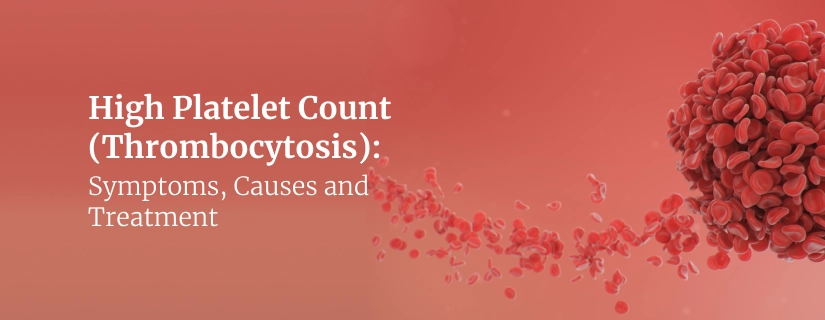-
Doctors
-
Specialities & Treatments
Centre of Excellence
Specialties
Treatments and Procedures
Hospitals & Directions HyderabadCARE Hospitals, Banjara Hills CARE Outpatient Centre, Banjara Hills CARE Hospitals, HITEC City CARE Hospitals, Nampally Gurunanak CARE Hospitals, Musheerabad CARE Hospitals Outpatient Centre, HITEC City CARE Hospitals, Malakpet
HyderabadCARE Hospitals, Banjara Hills CARE Outpatient Centre, Banjara Hills CARE Hospitals, HITEC City CARE Hospitals, Nampally Gurunanak CARE Hospitals, Musheerabad CARE Hospitals Outpatient Centre, HITEC City CARE Hospitals, Malakpet Raipur
Raipur
 Bhubaneswar
Bhubaneswar Visakhapatnam
Visakhapatnam
 Nagpur
Nagpur
 Indore
Indore
 Chh. Sambhajinagar
Chh. SambhajinagarClinics & Medical Centers
Book an AppointmentContact Us
Online Lab Reports
Book an Appointment
Consult Super-Specialist Doctors at CARE Hospitals
Vitamin A Deficiency: Symptoms, Causes, Diagnosis and Treatment
Updated on 19 December 2023

Table of Content
- What is Vitamin A Deficiency?
- Who Does Vitamin A Deficiency Affect?
- Signs and Symptoms of Vitamin A Deficiency
- Causes of Vitamin A Deficiency
- Diagnostic Tests for Vitamin A Deficiency
- Treatments for Vitamin A Deficiency
- How Can I Prevent Vitamin A Deficiency?
- What Foods Contain Vitamin A?
- Conclusion
Vitamin A, commonly referred to as a 'super nutrient,' is essential for supporting general health and well-being. It is vital for good vision, a robust immune system, healthy skin, and various other physiological processes. Despite its importance, this vital vitamin is lacking in a large number of people worldwide. When the body doesn't get enough of this vital mineral to function properly, it develops a vitamin A deficiency. Blindness and visual impairment can result from vitamin A deficiency. Additionally, it may result in troubles with one's immune system, tissues, skin, heart, and lungs.

What is Vitamin A Deficiency?
Vitamin A deficiency is a nutritional disorder characterised by inadequate levels of vitamin A in the body. This essential fat-soluble vitamin is required for various biological functions, primarily related to vision, growth, and immune system support. There are two forms of vitamin A: preformed vitamin A or retinol and provitamin A carotenoids, which the body can convert into active vitamin A.
Fish, eggs, chicken, beef, and poultry products are naturally high in preformed vitamin A. Carotenoids are plant-based pigments that give vegetables and fruits their yellow, orange, and red colours. Infants, children, nursing moms, and pregnant women are the ones most at risk of deficiency. The risk of deficiency may also be increased by cystic fibrosis and persistent diarrhoea.
Who Does Vitamin A Deficiency Affect?
People of all ages can suffer from vitamin A deficiency, although some demographic groups, especially those in underdeveloped nations, are more likely to experience it than others. Newborns, young children, and pregnant or nursing mothers are among the most exposed groups. Poor dietary diversity, restricted access to nutrient-dense foods, and socioeconomic conditions are frequently linked to inadequate vitamin A consumption. In these regions, vitamin A deficiency is a significant public health concern and contributes to higher mortality rates, especially among children. It also affects those who have conditions that interfere with the body's ability to absorb vitamins, such as liver ailments.
Signs and Symptoms of Vitamin A Deficiency
Recognising the symptoms of vitamin A deficiency is crucial for early intervention. The symptoms of a lack of vitamin A can vary in severity and may include:
- Night blindness: Impaired vision in low-light conditions (common early sign)
- Xerophthalmia: Dryness, irritation, and an increased susceptibility to infections in the eyes.
- Bitot's Spots: The formation of small, foamy white patches on the conjunctiva, often seen in individuals with vitamin A deficiency.
- Increased Susceptibility to Infections: Vitamin A deficiency weakens the immune system, making individuals more prone to infections, such as respiratory illnesses
- Dry, rough skin and a higher risk of acne and other skin disorders
- Delayed growth and development in children
- Keratomalacia: A more severe eye condition that can result in the softening and destruction of the cornea, leading to blindness (occurs in severe cases of vitamin A deficiency)
- Infertility in some cases
- Delayed wound healing following trauma or surgery. This is because vitamin A encourages the production of collagen, which is necessary for healthy skin.
Causes of Vitamin A Deficiency
Causes of vitamin A deficiency include:
- Inadequate consumption of foods rich in vitamin A, such as leafy greens, carrots, sweet potatoes, eggs, and liver, can lead to deficiency.
- Certain medical conditions, such as celiac disease and Crohn's disease, can hinder the absorption of vitamin A from the diet.
- Chronic alcohol consumption can impair the body's ability to store and use vitamin A effectively.
- Infants and pregnant or lactating women have higher vitamin A requirements, making them more susceptible to deficiency.
- Some infections, such as measles, can deplete the body's vitamin A stores and exacerbate deficiency.
- Since vitamin A is fat-soluble, diets very low in dietary fat can hinder its absorption.
Diagnostic Tests for Vitamin A Deficiency
Diagnosing vitamin A deficiency usually involves a combination of clinical evaluation and laboratory tests. Doctors may perform the following procedures:
- Clinical Assessment: A healthcare provider may inquire about symptoms, dietary habits, and medical history.
- Blood Tests: Blood tests can measure levels of vitamin A in the blood, specifically through retinol or retinol-binding protein (RBP) concentration tests.
- Conjunctival Examination: An eye examination may reveal specific signs of vitamin A deficiency, such as Bitot's spots or xerophthalmia.
- Electroretinography: The physician will use light flashes to test the retina's photoreceptor function in patients suffering from night blindness.
Treatments for Vitamin A Deficiency
Once diagnosed, vitamin A deficiency is typically treatable and manageable. Treatment options include:
- Vitamin A Supplements: For several days, the doctor will administer high dosages of a vitamin A supplement to address vitamin A insufficiency. They will then prescribe smaller doses of vitamin A until the skin and vision issues improve.
- Dietary Changes: Increasing the intake of foods rich in vitamin A, such as leafy greens, sweet potatoes, carrots, eggs, and liver.
- Addressing Underlying Causes: In cases where underlying health conditions contribute to vitamin A deficiency, treatment may involve addressing those conditions.
How Can I Prevent Vitamin A Deficiency?
Preventing vitamin A deficiency disorder primarily involves maintaining a well-balanced and diverse diet.
- Incorporate a wide range of fruits and vegetables into your diet to ensure a diverse intake of vitamins and minerals.
- Include foods such as spinach, sweet potatoes, carrots, and fortified cereals in your meals.
- Expectant and breastfeeding mothers should ensure they meet their increased vitamin A requirements.
- Breast milk is an excellent source of vitamin A, making breastfeeding a valuable practice for infant health.
- If someone has medical conditions that affect nutrient absorption, it is essential to seek medical help to manage them effectively.
- Vitamin A deficiency can be treated with injectable and oral supplements.
- If vitamin A supplements are the preferred option, use them only after speaking with a physician because improper dosages can be hazardous.

What Foods Contain Vitamin A?
To boost vitamin A intake, consider adding these nutrient-rich foods to your diet:
- Sweet Potatoes: A single serving provides several times the recommended daily intake of vitamin A.
- Carrots: These orange vegetables are well-known for their high vitamin A content.
- Spinach: Leafy greens like spinach are rich in vitamins and minerals, including vitamin A.
- Liver: Organ meats, particularly liver, are exceptionally high in vitamin A.
- Eggs: The yolks of eggs contain vitamin A, among other essential nutrients.
- Mangoes: This tropical fruit is a delicious source of provitamin A carotenoids.
- Papayas: Like mangoes, papayas are rich in carotenoids and vitamin A.
- Red Bell Peppers: These vibrant vegetables are packed with vitamin A.
- Fortified Foods: Many cereals, milk, and dairy alternatives are fortified with vitamin A to enhance their nutritional value.
Conclusion
Vitamin A deficiency is a global health concern that can lead to severe health issues, particularly in vulnerable populations. By prioritizing a balanced diet rich in vitamin A and taking supplements, we can reduce the prevalence of vitamin A deficiency and improve overall well-being. Individuals who have underlying medical concerns should see their doctor frequently since they may be at risk for different deficits. Whether through dietary choices, supplementation, or fortification programs, there are various avenues to address this nutritional challenge.
Dr. Mohd Hashim
Consultant Internal Medicine, CARE Hospitals

ENQUIRY FORM
SELECT CATEGORIES
-
Neurosciences (16)
-
Neurology (37)
-
Neurosurgery (14)
-
Orthopaedics (48)
-
Oncology (33)
-
Obstetrics and gynecology (51)
-
Pulmonology (23)
-
Urology (20)
-
Nephrology (13)
-
Psychiatry (7)
-
Dietetics and Nutrition (111)
-
General Medicine (63)
-
Cardiac Sciences (30)
-
Vascular & Endovascular Surgery and Interventional Radiology (10)
-
Gastroenterology (46)
-
Endocrinology (23)
-
Plastic Surgery (10)
-
Critical Care Medicine (5)
-
COVID-19 (16)
-
Dermatology (16)
-
Emergency Care (1)
-
Ophthalmology (4)
-
Pediatrics (14)
-
Laparoscopic and Bariatric Surgery (8)
-
ENT (15)
-
Kidney Transplant (1)
-
Liver Transplantation and Hepatobiliary Surgery (5)
-
General Surgery (3)
-
Internal Medicine (5)
-
Medicine Information
Low Potassium (Hypokalemia): Symptoms, Causes, Treatment and Home Remedies
YOU MAY ALSO LIKE
RECENT BLOGS
-

Direct Anterior Approach in Total Hip Replacement: Advantages and Challenges
10 April 2025
Read More
-

Zinc Deficiency: Signs and Symptoms, Causes, Treatment
9 April 2025
Read More
-

Chest Pain When Coughing: Causes, Treatment and Home Remedies
9 April 2025
Read More
-

12 Health Benefits of Eating Mushrooms
8 April 2025
Read More
-

7 Health Benefits of Blood Donation You Should Know About
8 April 2025
Read More
-

Implantation Bleeding Vs Periods: Know the Difference
28 February 2025
Read More
-

Bloating During Ovulation: Symptoms, Causes and Remedies
28 February 2025
Read More
-

Itching During Dengue: Causes, Treatment and Home Remedies
18 February 2025
Read More
Have a Question?
If you cannot find answers to your queries, please fill out the enquiry form or call the number below. We will contact you shortly.




